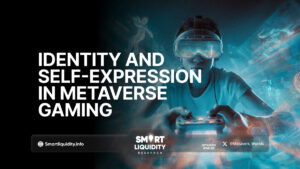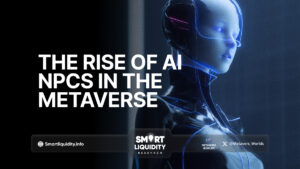The Impact of the Metaverse on Social Interactions


The concept of the metaverse, a virtual shared space merging physical and digital realities, is rapidly reshaping social interactions in ways previously unimaginable. This transformative technology not only connects people across vast distances but also introduces innovative projects that redefine how we interact and engage in virtual environments.
One notable example is Decentraland, a blockchain-based virtual world where users can purchase land, build structures, and interact with others. Decentraland exemplifies the metaverse’s potential to democratize ownership and creativity, allowing users to express themselves through customizable avatars and virtual spaces. Social interactions in Decentraland range from attending virtual events to participating in collaborative projects, fostering a sense of community and shared experiences.
Another groundbreaking project is Spatial, which focuses on collaborative augmented reality experiences. Spatial enables users to meet in virtual rooms using AR technology, where they can interact, share content, and collaborate on projects as if they were physically present. This platform enhances remote work and social gatherings by creating immersive environments where spatial presence enhances communication and engagement.
Furthermore, Fortnite‘s adoption of virtual concerts showcases the metaverse’s entertainment potential. Artists like Travis Scott and Marshmello have hosted virtual concerts within Fortnite, attracting millions of viewers who interact with each other in real-time during these events. Such experiences demonstrate how the metaverse can merge entertainment and social interaction on a global scale, transcending physical limitations to create shared cultural moments.
Moreover, platform like VRChat facilitate social interactions through virtual reality, allowing users to engage in activities ranging from casual conversations to virtual parties and educational workshops. These platform leverage VR technology to simulate face-to-face interactions, fostering deeper connections and meaningful experiences in immersive environments.
However, the expansion of the metaverse also raises important considerations regarding privacy, digital identity, and inclusivity. As these technologies evolve, ensuring ethical use and safeguarding user rights will be crucial in harnessing their full potential for positive social impact.
In conclusion, the metaverse is revolutionizing social interactions by offering innovative projects that redefine how people connect, collaborate, and create in virtual spaces. From blockchain-powered virtual worlds to immersive augmented reality experiences and virtual concerts, these examples illustrate the metaverse’s ability to enhance communication, creativity, and community on a global scale. As society embraces these advancements, navigating ethical challenges and fostering inclusive environments will be essential in shaping a future where the metaverse enriches human connections and experiences.
DISCLAIMER:
“The information provided on this platform is for general informational purposes only. All information on the platform is provided in good faith; however, we make no representation or warranty of any kind, express or implied, regarding the accuracy, adequacy, validity, reliability, availability, or completeness of any information on the platform.”




